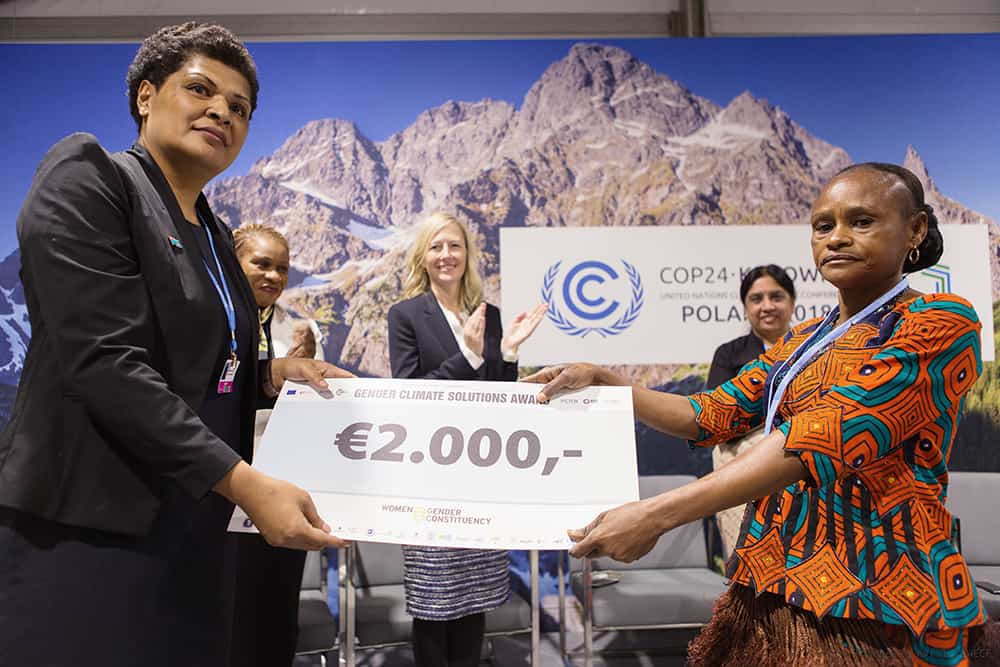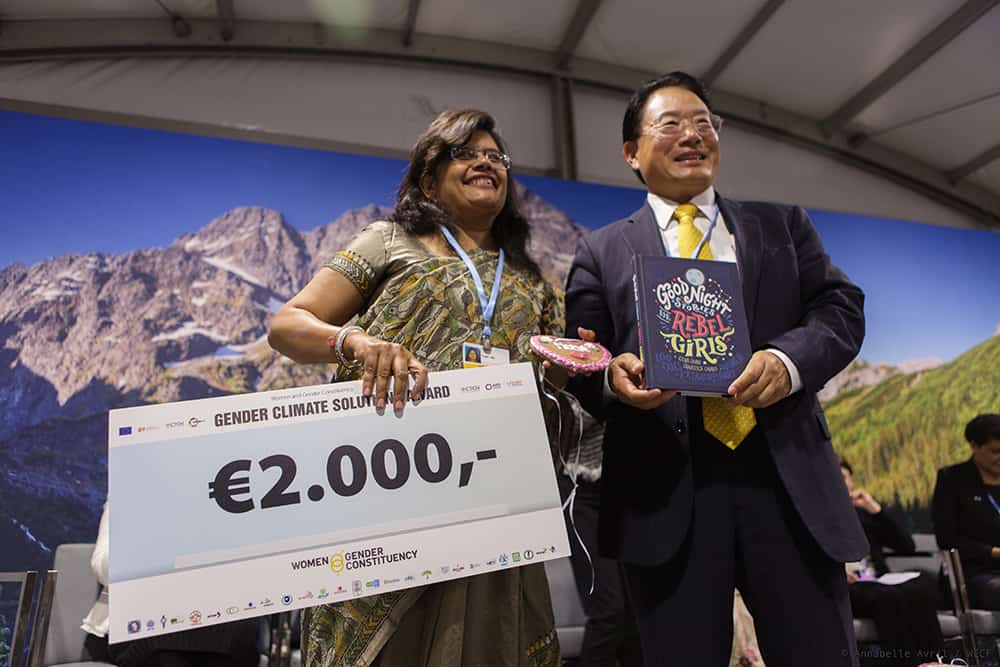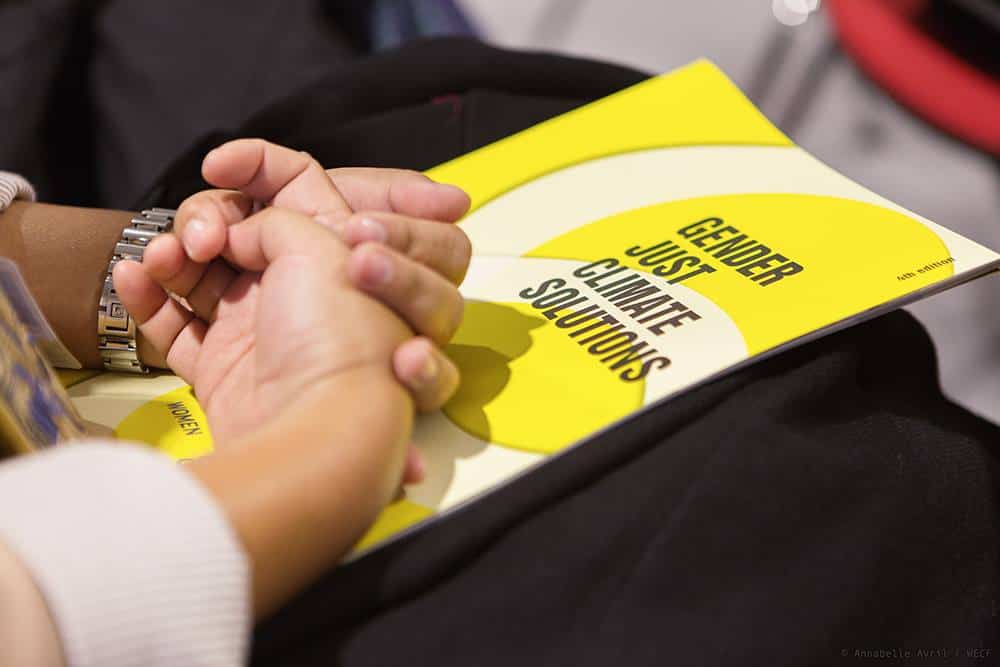Meet the Winners of the Gender Just Climate Solutions Award at COP24
On the 70th anniversary of the Universal Declaration of Human Rights, we held our inaugural Gender Just Climate Solutions Award and publication launch at the climate negotiations in Katowice, Poland.
The IPCC report have made us all aware of that time is of the essence if we are to avoid future global warming rising to more than 1.5 degrees. It is in times like these we need to look at the sustainable solutions that are already out there, to support and scale up innovative initiatives that put equity and sustainability at heart. Our award winners are not only challenging the status quo, they are turning the system upside down.
Transformational solutions winner
Dorothee Lisenga (CFLEDD), Congo DRC
According to a 2016 study, 70% of women in the DRC did until recently not have access to land and forest titles. The award winner is an amazing woman who has organised dialogues on women’s inheritance rights between customary chiefs, local and indigenous women. This has resulted in have led to huge successes in women’s access to land and forest rights of women in the provinces of Ecuador and Maindombe of the DRC.
Non-technical solutions winner
Clive Chibule (Green living Movement), Zambia
This award winner has trained 537 women on leadership in project management and climate resilience. In a region stricken by climate-shocks, it has become necessary to support women farmers in diversifying their income, and making them less dependent on rain-fed harvests. Women farmers, with the support of the award winner, reproduce their own seeds, have planted over 35,000 trees, and created 250 vegetable gardens.
Technical solutions winner
Trupti Jain (Naireeta Services), India
Gujarat state is prone to short periods of heavy rains and flooding, followed by long droughts. Many farmlands have become waste lands. This award winner has combined women’s leadership with low cost and sustainable technology to tackle the severe impacts of excessive rain water from storms. This technology protects groundwater via a filtration system and increases soil fertility by reducing salinity. The units conserve 1-4 million litres of runoff water and can irrigate 22 acres during the dry season. While women still do not own the land, by owning the technology they help their community double their harvest which in turns has a tremendous impact on their role in the community as decision-makers. Since 2011, more than 3500 units have been installed in India and also increasingly abroad; in Ghana, Vietnam and Bangladesh. Each installed Bhungroo provides food security for 30 to 100 people, generating an additional income of about USD 5700 per year.
Continued collaboration
The Climate Technology Centre & Network (CTCN) is inviting the winners from 2018, 2017, 2016 and 2015 to a workshop on up-scaling gender just climate solutions, sharing of climate technology and finance. This is a continuation of our capacity-building cooperation initiated at COP23 and builds on south-south and technology knowledge sharing. It is a closed event but journalists are invited to come and interview the winners.
About award
Each winner have received a grant of 2,000 Euros, travel support for one representative to attend COP24, one year of mentorship activities from the members of the Women and Gender Constituency (WGC), and opportunity to participate in a skills training workshop held by CTCN. Being the 5th year running, this year we had 145 applicants, from 70 countries, 3 winners and 2 million readers of our publication.
Download publication
The publication is available in French and English.





